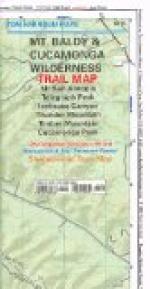For days afterwards, the birch-bark horn was rarely out of Dol Farrar’s hands. The boy was so entranced with the new musical art he was mastering, which would be a means of communication between him and the behemoth of the woods, that he haunted the edges of the forest about the clearing, keeping aloof from his brother and friend, practising unceasingly, sometimes under Herb’s supervision, sometimes alone. He learned to imitate every sound which the guide made, working in touching quavers and inflections that must tug at the heart-strings of any listening moose. He learned to give the call, squatting Indian fashion, in a very uncomfortable position, behind a screen of bushes. He learned to copy, not the cow’s summons alone, but the bull’s short challenge too; and to rasp his horn against a tree, in imitation of a moose polishing its antlers for battle.
And now, for the first time, Dol Farrar of Manchester regarded his education as complete. He was prouder of this forest accomplishment, picked up in the wilds, than of all triumphs over problems and ’ologies at his English school. He had not been a laggard in study, either.
But the finishing of Dol’s education had one bad result. If there happened to be another moose travelling through the adjacent forests, he evidently thought that all this random calling was too much of a good thing, had his suspicions aroused, and took himself oft to wilder solitudes. Though the guide tried his powers in persuasive summons every night at various calling-places, he could not again succeed in getting an answer.
At last, on a certain evening, after supper, a solemn camp-council was held around an inspiring fire, and Herb Heal suggested that if his party were really bent on seeing a moose again, before they turned their faces homeward, they had better rise early the following morning, shoulder their knapsacks, and set out to do a few days’ hunting amid the dense woods near the base of Katahdin.
“I killed the biggest bull-moose I ever saw, on Togue Ponds, in that region,” said the guide meditatively; “and I got him in a queer way. I b’lieve I promised to tell you that yarn.”
“Of course you did!”
“Let’s have it!”
“Go ahead, Herb! Don’t shorten it!”
Thus encouraged by the eager three, the woodsman began:—
“It is five years now, boys, since I spent a fall and winter trapping in them woods we were speaking of—I and another fellow. We had two home-camps, which were our headquarters, snug log shelters, one on Togue Ponds, the other on the side of Katahdin. As sure as ever the sun went down on a Saturday night, we two trappers met at one or other of these home-camps; though during the week we were mostly apart. For we had several lines of traps, which covered big distances in various directions; and on Monday morning I used to start one way, and my chum another, to visit these. Generally it took us five or six days to make the rounds of them. While we were on our travels we’d sleep with a blanket round us, under any shelter we could rig up,—a few spruce-boughs or a bark hut. When the snow came, we were forced to shorten our trips, so as to reach one of the home-camps each night.




